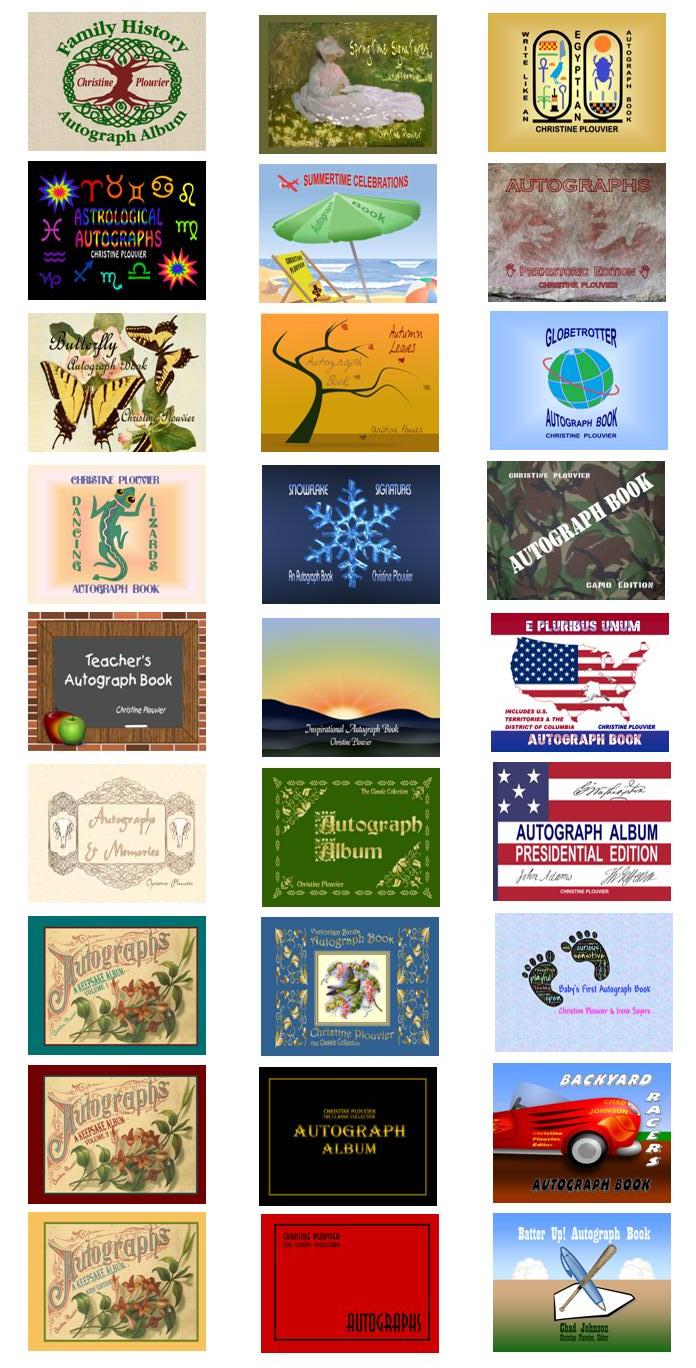Im WordPress nichts Neues.*
Scuttlebutt has it that horrible things are happening (or are about to happen) to the functionality of the Blog Host We All So Admire. This should be no news to those of us who have been blogging here for the past 5 years (as I have), or even longer.
Some bloggers are particularly irate about what they have experienced as a discoverability problem associated with the WordPress search engine. People who commented at one such blog also said they were having trouble finding the blogger in question. The universal conclusion was “a broken WordPress search engine.”
Many bloggers may not have much knowledge about the intricacies of computer technology because they’re “users” (people who are not, and never have been, “programmers,” no matter how many years they may have had computers in their work or personal lives). They never even dabble in HTML, and are content to just plug-and-play. That’s fine and dandy. But not having any background in the anatomy and physiology of computers can make life frustrating when things on the screen seem to be going pear-shaped.
What follows (in the shaded, bold italic block quote) is a short course in computer technology, composed by a person who was programming computers long before the last two generations of geeks were gleams in their granddaddies’ and daddies’ eyes. (It’s highly generalized, but fundamentally correct.)
Computers are stupid. Despite the bells and whistles, all they really understand are only “on” and “off.” What is typed that shows up on a screen as a word is just an electrical signal generated by a combination of alpha-numeric characters that are coded in a computer language. When people talk to computers, they have to use the same language, and user input in that language has to mathematically add up, for communication to occur (hence the name, “computer”).
When you use a search engine, the stupid computer on the receiving end of your request simply looks for exactly what you typed into the search bar. If you leave anything out, or mistakenly add something that isn’t part of the term for which you’re looking, the on-and-off sum that the computer comes up with won’t match anything it can find, and you won’t get any hits. This is not exactly “garbage in, garbage out” (GIGO), because no garbage comes back, although the artificial intelligence (AI) that’s programmed into some search engines will guess that there’s a misspelling, and will come back with some alternative suggestions (which may, indeed, be garbage).
In the recent “discoverability” example cited above, the commentator who said that the blogger couldn’t be found reported having entered as search terms only part of the blogger’s name, only part of the blog’s domain name, and only one iteration of the word that’s used for the blog’s title. These were technically misspellings, but as far as WordPress’s stupid computer was concerned, they were just generic words, and as a result, thousands of hits were supplied, effectively burying from sight any correct hit on the blog in question.
In another apparent example of search-engine-gone-awry, the same blogger was angered to find not only just re-blogs of the blogger’s original post, but also the many hundreds (thousands? tens of thousands?) of hits that were for blogs which somewhere in their titles or texts had used the word which the blogger had been using for years as a blog title.
In the first place, blog posts get time stamps when they’re published, and because the most recent occurrences of a search term will show up first on a hit list, any re-blogs would appear before one would find the original post. Secondly, getting in the way are the more recent posts of all those thousands of bloggers who, in the interval since the post in question was published, wrote something that used the same word for which the unhappy blogger was searching. Again, if what you’re searching for is a fairly common word, all you’re going to get is rubbish.

My blog post inventory, accessed from my Dashboard, showing my latest 4 posts. Note that the time stamps include hour, minute and second. (Click on this image to enlarge it.)
The question then arose about the “ownership” of the “name” of the blog. The angry blogger, who had paid for a plan, apparently was of the impression that what had been bought was the word that is being used for the title that appears in the header of the person’s blog. The blogger expressed the belief that exclusive rights to use that blog title had been violated, because that “name” had been “bought” but was in use by other people to identify their blogs. This is a grievous misunderstanding.
The “name” that one sets up for a blog (whether free or paid), is not the text that can be put in the blog header: that’s just the title of the blog. In my case, the actual blog “name” is a variant of the domain name possessed by the blog host (WordPress, whose domain name is “wordpress.com”).
Because computers use telephone systems to navigate the internet, a domain name is nothing more than a telephone number. This number appears as the universal resource locator (URL) that shows up in the address bar at the top of a window.
When you set up a free blogsite, what you get for a domain name/URL is essentially the WordPress phone number with an extension number added. When you pay to have a blog account, WordPress obtains a completely different phone number, and rents it to you. (The only thing you own at WordPress is your copyright to the original content you post on your blog, and even that can be contested by pirates and plagiarists, if you haven’t registered your copyright.)
Thus, the title of your blog (and any associated tagline you may choose to add), which you put in the header, is not your domain name, and you don’t own it, no matter how long you’ve used it. Of course, you can choose to reproduce your domain name as the title in the header, but that still doesn’t mean you own, or have the exclusive right to use, the title of your blog. (In fact, according to US copyright law, titles cannot be copyrighted, which is why you can often find several books, fiction and nonfiction, all covering different subject matter, but which have exactly the same title.)
As far as any stupid computer’s search engine is concerned, the title that appears in the header of a blog is just another piece of generic text, and it gets treated just as any other word gets treated in a search: it has to take a number and queue up in a hit list, like any other block of text. Therefore, if you want people to be able to find your blog by searching for its title, you have to make sure that your title is unique enough to have few possible duplicates.
Likewise, if you want your blog to make it to the top of a hit list when a search term matches your domain name/URL, you have to make sure that you pick a suitably unique set of words, or combination of words and numbers. You also need to be sure that your domain name/URL can be easily identified with you, personally, or with something special about your blog. Then, folks will find it.
At this point I would like to report that when I searched for the missing blogger, I used the blogger’s full name, the blog’s full domain name/url, and with Caps Lock on, I entered the common word the blogger uses for a title. I did these separate searches when I was logged in to WordPress, and when I was not, and used two different browsers (Chrome and Firefox). I used the dedicated search engine page at https://en.search.wordpress.com/ and the search engine on the “Reader” page. At the dedicated search engine, the original blog post came up within the top three hits of the hit lists that were returned; at the Reader search engine, only the blog title failed to turn up the desired results, indicating to me that the word is too common. As far as I was concerned, the blogger was not “Lost in Space,” and the search engine(s) not broken.
Now, it’s entirely possible that drag-and-drop experiments by WordPress Unhappiness Engineers have screwed up search engine optimization by introducing strongly graphics-oriented functionality to what is now a heavily text-based application. That kind of messing around is understandable, because WordPress has tons of techies on payroll who have to justify their existence there by fixing things that ain’t broken. The problem with it, is that those of us who are more literate than the point-and-grunt generation may prefer to communicate with real words that can be coded into machine-readable language, rather than to push around pictures composed of what Microsoft PowerPoint called Word Art. Sometimes, WYSIWYG just doesn’t cut the mustard.
The only difficulty I’ve had over the past few weeks are isolated incidents of my userid not working, when I tried to log in. I keep all my usernames and passwords in a spreadsheet file, and all I have to do is copy and paste what I need into a log-in field, so I know that I hadn’t misspelled anything. What I ended up doing to gain access was to temporarily switch to using my e-mail address, and I got in all right. The next time around, my username worked just fine. Go figure.
The really important thing about all this is not to get our knickers in a twist. Turning WordPress Woes into WordPress Wars is as futile as Pickett’s Charge, or the Battle of the Somme: frontal assaults against an entrenched enemy’s strongest point, in an uphill battle.
We can make complaints to the Unhappiness Engineers, and when the changes that are made don’t suit us, we can quietly vote with our feet (if that’s what we type with) and take our blogging elsewhere. We probably won’t be missed by the WordPress Warlords, because there will always be a new generation of clueless cannon-fodder users, who don’t know how good it used to be, to take our place.
 In the end, it’s WordPress’s business, so they can run it into the ground, if that’s what they want to do.
In the end, it’s WordPress’s business, so they can run it into the ground, if that’s what they want to do.
* Apologies to Erich Maria Remarque.
























Reblogged this on Chris The Story Reading Ape's Blog.
LikeLiked by 1 person
Wait. Using header tags are supposed to help the search engine find your stuff.
It’s supposed to think that things in a are more important than stuff in a or tag. Even ‘stupid search engines’ should be able to prioritize things inside of different tags.
(note for non-coders: header 1 is the biggest, header 5 is the size of normal text, p is a paragraph tag)
LikeLike
Oh, it will find it, but if it’s a common word, the computer probably won’t prioritize it for display over any other such entry using that word. The way a computer hit list works is based on the time stamp, sometimes modified by the case of the word (whether or not it’s capitalized), but only if case has been programmed into the sort function. If there are thousands of titles using the same word, written the same way, it’s the time it was published that determines where any particular one will finally show up on the hit list.
LikeLiked by 1 person
So wrong! *facepalm*
Bad coder, no soda.
LikeLike
Reblogged this on When Angels Fly.
LikeLiked by 1 person
Thanks for this explanation. 🙂 — Suzanne
LikeLike
Reblogged this on Viv Drewa – The Owl Lady.
LikeLiked by 1 person